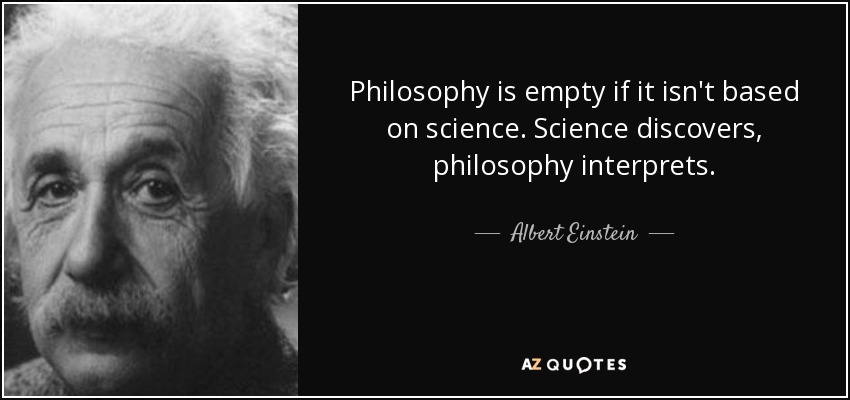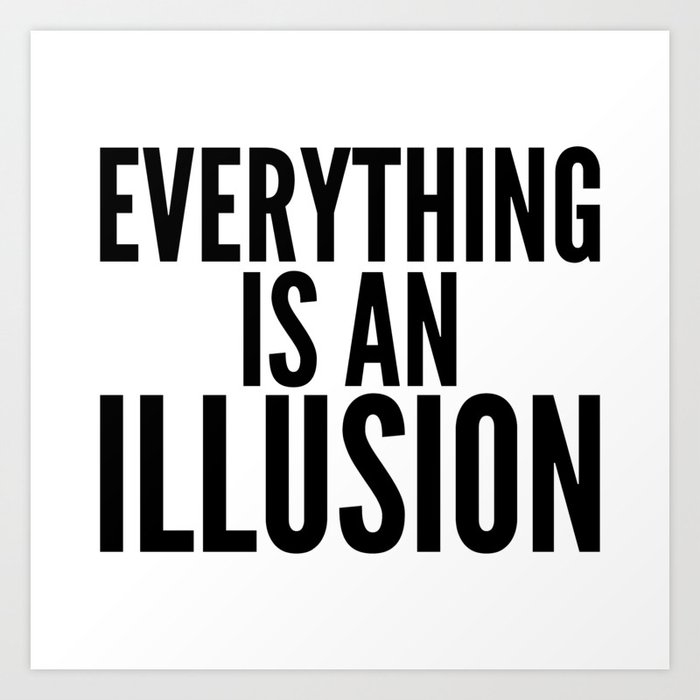 I’ve been having a lot of discussions on philosophy lately and most don’t go well. There are a lot of people who seem to think that philosophy is a one-size-fits-all solution for every problem without exception and that’s just not how any of this works.
I’ve been having a lot of discussions on philosophy lately and most don’t go well. There are a lot of people who seem to think that philosophy is a one-size-fits-all solution for every problem without exception and that’s just not how any of this works.
Not that most of these people care. So I wanted to talk about a recent example or two and why these people just need a lot of help.
First, I want to address a lot of things in this thread over on Reddit. No, I don’t expect you to read all of the comments, I’ll point out some of the issues that I had, but it is an interesting conversation. I did post, at one point, that the whole thing felt like someone who had taken an introductory philosophy class and now, thought they knew everything. I see a lot of that online. I’m willing to bet that most of the people you see online, either they are self-educated in philosophy or have only taken a few introductory classes and are “on fire for philosophy”, where they’ve stumbled into it and think that philosophy is the most amazing thing ever. Those people do not impress me.
The poster seems to be looking for eternal, inerrant knowledge and that’s not a realistic expectation. A lot of theists seem to want that, if you notice. Philosophy doesn’t have any mechanism, period, for coming to objectively verifiable conclusions. As Einstein said above, science discovers, philosophy interprets, but that doesn’t mean that philosophy can come up with a singular, demonstrable, objectively verifiable interpretation that withstands all challenges. It doesn’t do that and it can’t do that. It can tell you if an argument is flawed. It can’t tell you if an argument is true.
That’s kind of the problem though, at least from my perspective, especially when you’re talking about things that occur in objective reality. As I’ve said before, it’s the entirely wrong tool for the job when it comes to the real world, yet for the religious, it’s the only tool that they have. When the only thing you have is a hammer, everything starts to look like a nail.
So the OP wrote:
Consider the claim that the world is not five minutes old. We all believe that, and justifiably so. Or that we are surrounded by other minds rather than philosophical zombies.
 It’s not the first time that came up in the discussion, of course, but none of that can be rationally justified. Every shred of evidence that we have says that the world is not five minutes old. We have experiences and memories and evidence that says otherwise. Is it possible, if you take things to the extreme, that maybe it’s all an illusion? Sure, maybe, but we have no reason to doubt that our experiences provide a reasonably accurate view of the world, especially given how many corroboratory experiences we can gather from others. The question becomes “why should we believe this new claim?” and there isn’t any supporting evidence to look at. Therefore, we have to go with what the evidence that we have at hand shows and it doesn’t support that new claim.
It’s not the first time that came up in the discussion, of course, but none of that can be rationally justified. Every shred of evidence that we have says that the world is not five minutes old. We have experiences and memories and evidence that says otherwise. Is it possible, if you take things to the extreme, that maybe it’s all an illusion? Sure, maybe, but we have no reason to doubt that our experiences provide a reasonably accurate view of the world, especially given how many corroboratory experiences we can gather from others. The question becomes “why should we believe this new claim?” and there isn’t any supporting evidence to look at. Therefore, we have to go with what the evidence that we have at hand shows and it doesn’t support that new claim.
The religious, and I have no idea if the OP was religious or not, don’t think that way. They’re looking to get to their emotionally-comforting conclusion whether it has any supporting evidence or not because they don’t care about the evidence, they only care about how their beliefs make them feel.
He also brought up Kalam and then immediately backpedaled the second people started to call him on it because it’s a completely incoherent, unsupportable argument. The instant that it’s pointed out that the religious have no actual evidence for anything, they just change course mid-stream because they got caught and now have to try a different tactic. Seriously, watch any debate against a strong atheist debater and the religious flip-flop an absurd number of times because they don’t actually have anything of substance to say.
 That brings you around to a Bertrand Russell quote that’s also applicable. When the religious can’t get science to say what they need it to say, they turn to philosophy and pretend that it’s capable of doing the exact same thing. That is simply false. Philosophy isn’t the right tool for the job they need to do and the right tool for the job, it tells them that they’re a bunch of simpletons.
That brings you around to a Bertrand Russell quote that’s also applicable. When the religious can’t get science to say what they need it to say, they turn to philosophy and pretend that it’s capable of doing the exact same thing. That is simply false. Philosophy isn’t the right tool for the job they need to do and the right tool for the job, it tells them that they’re a bunch of simpletons.
The reality is, people need to understand the limitations of their tools. Science applies to some things but not all things, but where it does apply, it is the unmistakable king. Philosophy applies to some things but not all things and where it does apply, it does the job very well. You can’t say “science and philosophy are both equally applicable everywhere” and not look like a complete idiot, yet that’s exactly what we see out there because we have people who start off with a conclusion, then try to use any tool in the toolbox to get there, whether they are using the tool properly or not. That has got to stop.
Philosophy isn’t knowledge. You can certainly use epistemology to figure out how to know what you know or to ask questions about the state of knowledge, but you can’t get to any actual, demonstrable knowledge using philosophy, period. You certainly can’t learn anything about the real world solely using philosophical means. The second that you see anyone trying to do that, you know they’ve gone completely off of the rails. And I’ll be honest, I am sick and tired of having to debate the subject, trying to explain how these things actually work.
Really, what the hell is wrong with people?